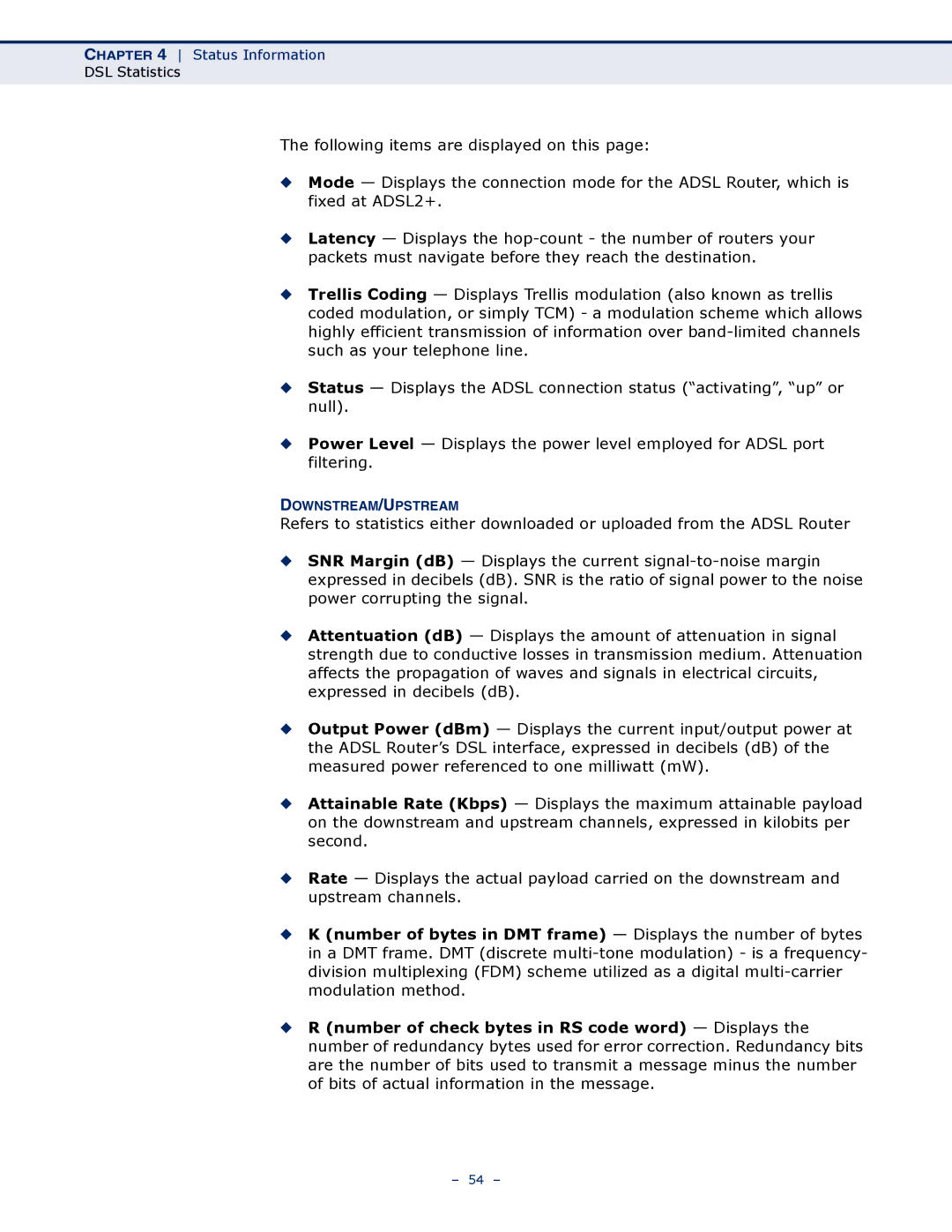CHAPTER 4 Status Information
DSL Statistics
The following items are displayed on this page:
◆Mode — Displays the connection mode for the ADSL Router, which is fixed at ADSL2+.
◆Latency — Displays the
◆Trellis Coding — Displays Trellis modulation (also known as trellis coded modulation, or simply TCM) - a modulation scheme which allows highly efficient transmission of information over
◆Status — Displays the ADSL connection status (“activating”, “up” or null).
◆Power Level — Displays the power level employed for ADSL port filtering.
DOWNSTREAM/UPSTREAM
Refers to statistics either downloaded or uploaded from the ADSL Router
◆SNR Margin (dB) — Displays the current
◆Attentuation (dB) — Displays the amount of attenuation in signal strength due to conductive losses in transmission medium. Attenuation affects the propagation of waves and signals in electrical circuits, expressed in decibels (dB).
◆Output Power (dBm) — Displays the current input/output power at the ADSL Router’s DSL interface, expressed in decibels (dB) of the measured power referenced to one milliwatt (mW).
◆Attainable Rate (Kbps) — Displays the maximum attainable payload on the downstream and upstream channels, expressed in kilobits per second.
◆Rate — Displays the actual payload carried on the downstream and upstream channels.
◆K (number of bytes in DMT frame) — Displays the number of bytes in a DMT frame. DMT (discrete
◆R (number of check bytes in RS code word) — Displays the number of redundancy bytes used for error correction. Redundancy bits are the number of bits used to transmit a message minus the number of bits of actual information in the message.
– 54 –
